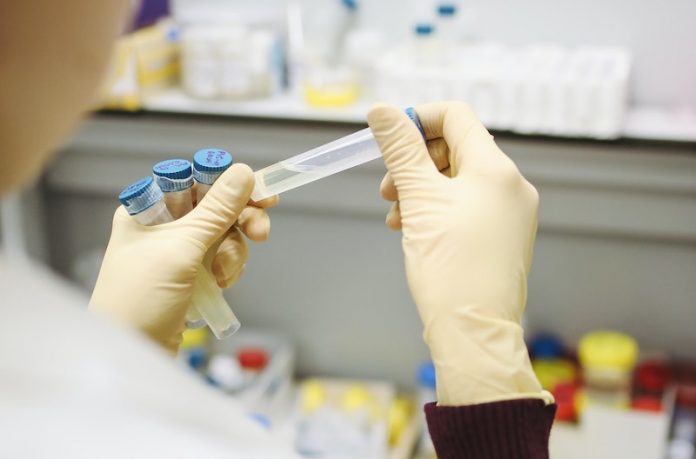
Scientists from the University of Utah found a family of proteins that is strongly increased in the saliva of patients hospitalized with COVID-19.
The proteins, known as ephrin ligands, could potentially serve as a biomarker to help doctors identify patients who are at risk for serious illness.
The research was presented at the American Physiological Society annual meeting during the Experimental Biology (EB) 2022 meeting and was conducted by Erika Egal et al.
Ephrins are detectable in saliva samples and could serve as adjunct markers to monitor COVID-19 disease progression.
Doctors can collect saliva without harm or discomfort for most patients, which can reveal patient responses to COVID-19 and potentially guide care.
In the study, the team analyzed saliva samples collected from patients admitted to the University of Utah Hospital emergency department with respiratory symptoms.
Sixty-seven of the patients tested positive for COVID-19 while 64 patients did not. The researchers found that the presence of ephrin ligands in saliva was strongly linked to the diagnosis of severe COVID-19.
The findings demonstrate that immune cells, cytokines and soluble proteins can be reliably measured from saliva samples.
The study could help shed light on the biological processes involved in severe reactions to COVID-19 infection. Previous studies suggest ephrins play a role in injury and inflammation.
The scientists say more research is needed to determine whether ephrin concentrations are linked with a higher likelihood of hospitalization, critical illness or death.
In addition, as new viral variants emerge, it can be difficult to tell whether existing COVID-19 tests are able to accurately detect infections involving new variants.
The team says looking for ephrins in saliva could offer a simple, non-invasive way to provide corroborating evidence when there is an inconsistency between test results and the clinical picture.
Sign up for our newsletter for more information about this topic.
If you care about COVID, please read studies about new treatment option for COVID-19, and even mild cases of COVID-19 could leave mark on the brain.
For more information about COVID, please see recent studies about how finger length could help predict severe COVID-19, and results showing scientists find persistent immune inflammation after mild COVID-19.
Copyright © 2022 Knowridge Science Report. All rights reserved.



